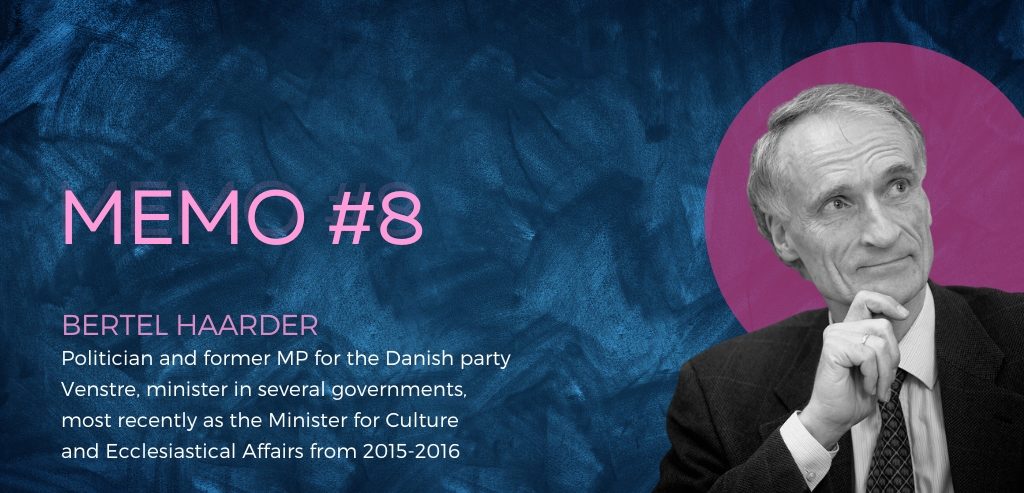“Democracy is a proper way to disagree”
– Bertel Haarder
What characteristic of democracies deserve greater awareness or appreciation?
Read Bertel Haarder’s answer:
In the midst of ongoing and looming wars, it’s worth remembering that historically, democracies never go to war with each other.
– Why?
Because they care about human life and human rights. Putin, XI and Hamas don’t. They are quite indifferent to their own and other countries’ citizens and see freedom and justice as a threat to their own positions of power.
In many ways, the fact that democracies have to take freedom and rights into account weakens their military power. But it strengthens their capacity for renewal that, unlike autocracies, they have a method of getting rid of bad leaders who have brought the country into disarray.
It also weakens democracies in the struggle between lies and truth in the modern misinformation wars when their own media highlights their weaknesses and willingly exposes them to the state media of dictatorships. At the same time, the fact that power is dispersed and does not lie with a single tyrant strengthens their ability to improve and innovate.
The Greek historian Polybius (who inspired Montesquieu’s doctrine of the separation of powers) already recognized that the separation and balance of power prolongs the life of a nation and prevents revolutions and collapse.
Our own wise theologian and ethics professor K. E. Løgstrup once set the record straight when he was invited by the then Minister of Education, Ritt Bjerregaard, to give a presentation on democracy in schools. He warned against making democracy all-encompassing and gave his own thought-provoking definition of democracy: “Democracy is not the contents of life, but a proper way of disagreeing.”
A proper way to disagree. That’s exactly what autocracies are missing.
